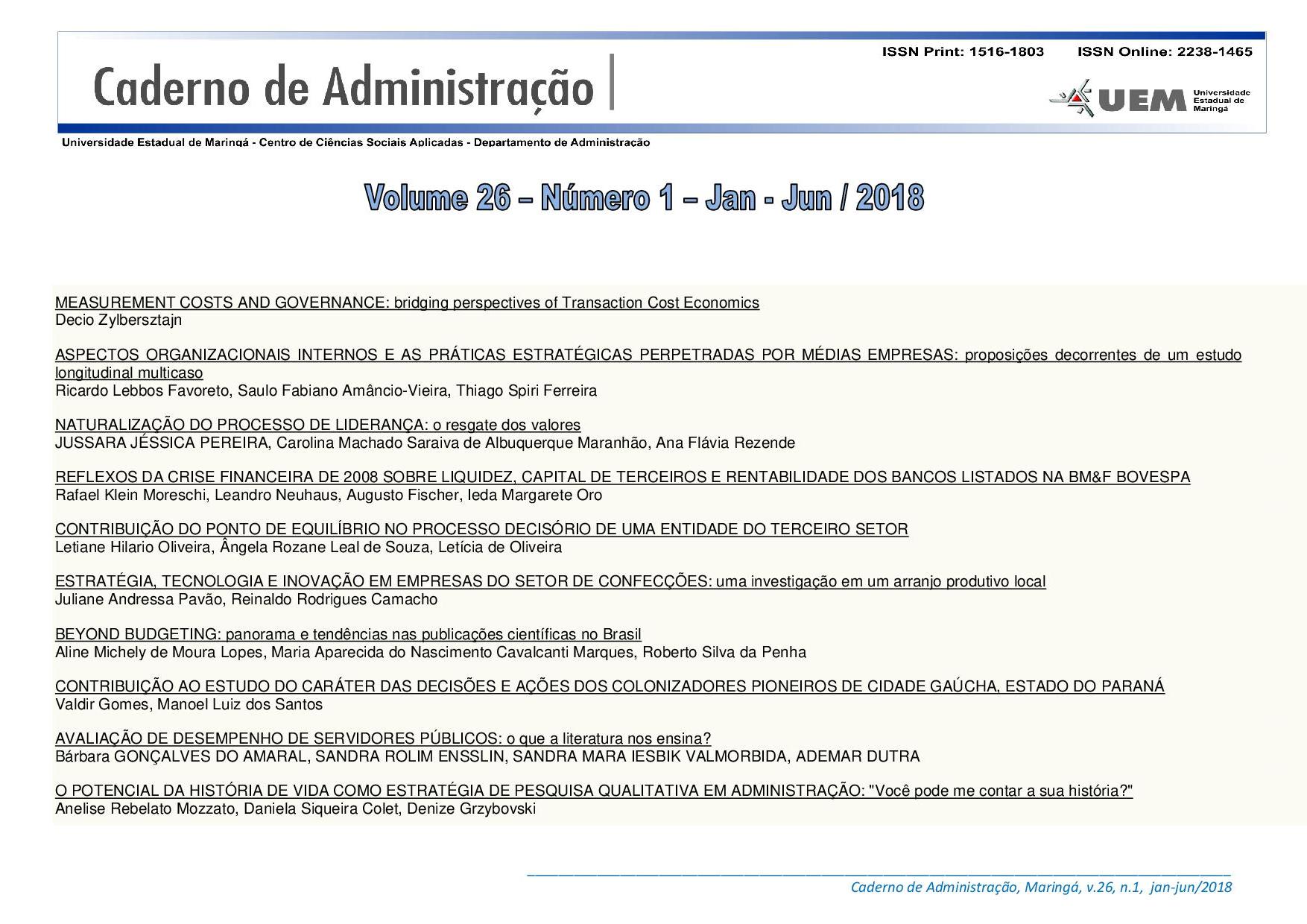MEASUREMENT COSTS AND GOVERNANCE: bridging perspectives of Transaction Cost Economics
Abstract
The theory of the firm arose from the production function paradigm and amplified its scope to comprise both coordination between firms and their internal organization. The transaction cost perspective motivated a large number of empirical studies based on quasi-rents appropriation resulting from asset specific investments. Another theoretical approach to the firm - likewise rooted in the transaction cost perspective - is the measurement cost theory, which has not had an equivalent empirical impact. Both theories share similar grounds but differ in terms of internal logic, explicit assumptions and key measurable variables, which suggests methodological implications. The aim of this paper is to contrast both theories, discussing their theoretical and empirical boundaries. Following the introduction, the second part contrasts the theoretical constructs. The third part suggests testable hypotheses and predictions. Part 4 presents a case of contradictory interpretation of similarly observed phenomena, using both lenses. Finally, Part 5 concludes.
Downloads
Os autores podem manter os direitos autorais pelo seu trabalho, mas repassam direitos de publicação à revista Caderno de Administração. A revista poderá usar o trabalho para fins não-comerciais, incluindo direito de enviar o trabalho em bases de dados de Acesso Livre.














